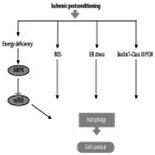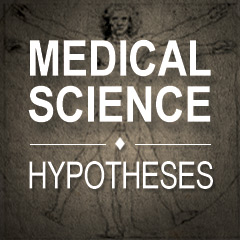Ischemic Post-Conditioning may Protect Lung from Ischemia-Reperfusion Injury through Autophagy Pathway
Donglei Liu, Yang Yang, Yu Qi, Kai Wu, Song Zhao
Med Sci Hypotheses 2014; 1:5-7
DOI: 10.12659/MSH.892201
Available online: 2014-11-15
Published: 2014-11-15

Abstract: Lung transplantation is an important therapeutic strategy for many end-stage pulmonary diseases. However, ischemia-reperfusion injury (IRI) remains an important clinical problem after lung transplantation. It is well-known that ischemic post- conditioning (IPoC) markedly enhances the ability of organs to withstand a sustained ischemia and reperfusion injury. But the exact mechanism of IPoC in the lung IRI is still controversial. Autophagy is an evolutionarily self-catabolic degradation pathway where cellular components are digested and recycled to sustain cellular metabolism and prevent the accumulation of damaged proteins and organelles. Many studies have proven that autophagy activation during IPoC offers a protective effect to a subsequent fatal ischemic insult such as focal cerebral ischemia and cardiac IRI. We therefore hypothesize that autophagy may play a protective role in lung IRI during ischemic post-conditioning and hope to find a new target to attain the beneficial effects by the regulation of autophagy.
Keywords:
